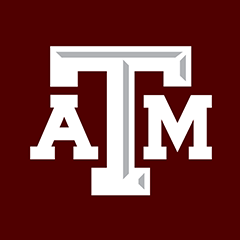
-
Charles M. Kenerley
- Professor Emeritus
- Focus Area: Understanding the genes and mechanisms of biocontrol by Trichoderma virens
- Office:
- PLPM Building, College Station
- Email:
- [email protected]
- Phone:
- 979-845-8261
Education
- Undergraduate Education
- B.S. Forestry, North Carolina State University
- Graduate Education
- M.S. Plant Pathology, Washington State University
- Ph.D. Plant Pathology, North Carolina State University
- Courses Taught
- BESC 402 Microbial Processes in Bioremediation
- BESC 481, Core Curriculum Communication Intensive Seminar
- PLPA 613, Plant Pathology Advanced Laboratory
Areas of Expertise
- Biological Control of Plant Pathogens
- Fungal Genetics
- Induced Systemic Resistance
Professional Summary
Charles Kenerley, Ph.D. is a Professor Emeritus in the Texas A&M University Department of Plant Pathology and Microbiology. His research interests lie in the biological control of plant pathogens by fungal antagonists. His teaching program involved courses in plant pathology and bioenvironmental sciences. The identification of genes from biological control agents encoding products that adversely target pathogens or stimulate the host to generate a resistant response (induced systemic resistance) provide foundations for the management of plant pathogens of crops. Over his career, he supported his research program with grants from NSF, USDA, BARD, BSF, DARPA, and Cotton Inc. He published over 80 referred publications and 11 book chapters, taught eleven courses at TAMU, was major advisory for 25 graduate students and member of 47 additional graduate student committees, and supervised over 75 undergraduates as research scholars. He was the Associate Department Head for PLPM, Associate Editor for Plant Pathology, member of the University Writing Center’s Course Approval Committee, Faculty Senate, TAMU Graduate Appeals Committee, COALS Grade Appeals Committee, and TAMU CRAFT Committee.
Selected Publications
- Vargas, W.A., Djonovic, S., Sukno, S.A., and Kenerley, C.M. 2008. Dimerization controls the activity of fungal elicitors that trigger systemic resistance in plants. Journal of Biological Chemistry 283: 19804-19825.
- Kubicek, C.P., Baker, S., Gamauf, C., Kenerley, C.M., and Druzhinina, I.S. 2008. Purifying selection and birth-and-death evolution in the class II hydrophobin gene families of the ascomycete Trichoderma/Hypocrea. BMC Evolutionary Biology 8: 4 (pages 1-16).
- Djonovic, S., Vargas, W.A., Kolomiets, M.V., Horndeski, M., Wiest, A., and Kenerley, C.M. 2007. A proteinaceous elicitor Sm1 from the beneficial fungus Trichoderma virens is required for induced systemic resistance in maize. Plant Physiology 145: 875-889.
- Viterbo, A., Wiest, A., Brotman, Y., Ilan, C., and Kenerley, C. 2007. The 18mer peptaibols from Trichoderma virens elicit plant defense responses. Molecular Plant Pathology 8:737-746.
- Djonovic,S., Vittone, G., Mendoza-Herrera, A., and Kenerley, C. 2007. Enhanced biocontrol activity of Trichoderma virens transformants constitutively co-expressing β-1,3- and β-1,6-glucanase genes. Molecular Plant Pathology 8:469-480.